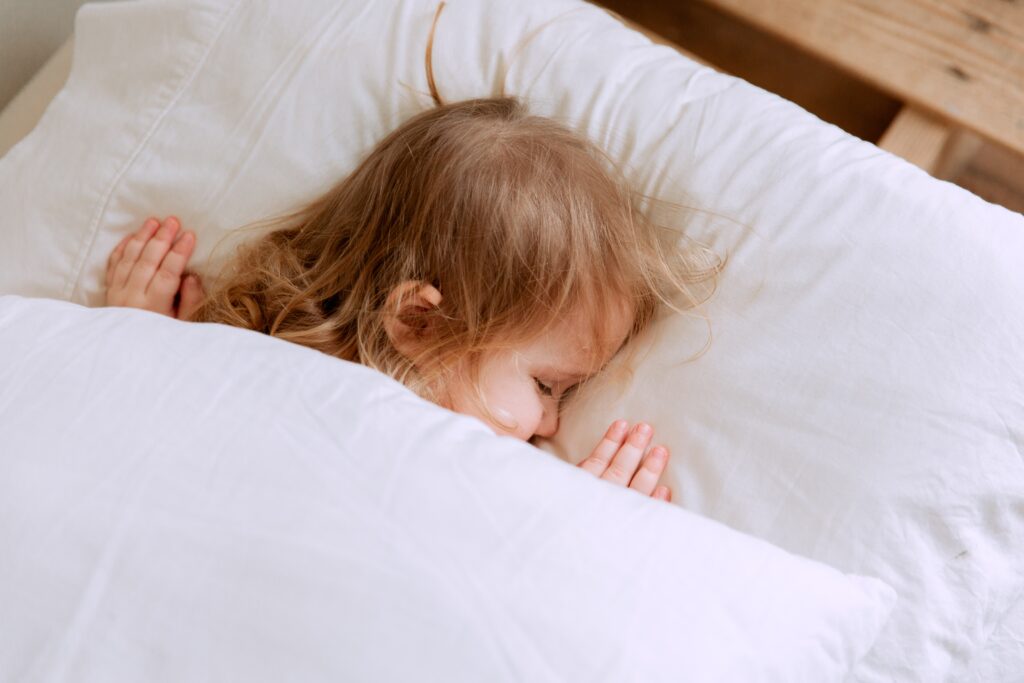It is very common for children with autism to have issues with sleep, but what do you do if your autistic child won’t sleep alone?
In this article we dig into the issue and come up with some ideas in terms of how it can be addressed.
Naturally every child is different so unfortunately we can’t guarantee success but we can put forward some ideas to try.
Autism and sleeping alone
For me there are almost two different problems here.
Firstly a child who won’t sleep in his or her bed at all and secondly a child who gets up in the middle of the night to get in with parents.
If your problem is the latter I would suggest you have a look at our article here.
If you are struggling to get them to sleep in their bed at all then here are some things to try;
Make their bed a comfortable environment
Make sure your child’s bedroom is a calming and comfortable environment.
This could include using soft lighting, comfortable bedding, and blackout curtains to eliminate any outside distractions.
There are various products on Amazon which may assist, here are some suggestions;
It may also be helpful to remove any stimulating toys or electronics from their room to help them focus on relaxing and sleeping.

Consider sensory additions to their room
Many children with ASD benefit from sensory input, which can help them feel more calm and relaxed.
This could include activities such as gentle massage, deep pressure, or using a weighted blanket.
As mentioned above, we have trawled Amazon for some ideas, including sensory additions.
Make your bed less appealing
Our goal is to make your child prefer sleeping in their own bed. With that in mind you could do the opposite of the above and keep the curtains open, the radio playing and choose bedding your child doesn’t like.
I fully appreciate this is not good for you but it only has to be for a short period of time. Imagine how overjoyed you will be if your child elects to sleep in their room over yours.
Don’t sleep in your bed
Again this sounds drastic but it may be that your child likes the warmth and comfort from you sleeping next to them.
If you take a week on the sofa or elsewhere then suddenly the appeal of your bed has reduced.
Try sleeping in their room
If your child just wants to be next to you then you could attempt sleeping in their room. Relax your child with you in their bed to the point you both fall asleep.
You can then try to sneak out while they are still asleep (difficult I appreciate).
Praise your child
Praise your child for any progress they make towards sleeping alone, no matter how small.
Consider using a reward system, such as a sticker chart, to encourage and motivate your child.
Create a night-time routine
Establishing a bedtime routine can be beneficial for all children, but it can be especially helpful for those with ASD.
A consistent routine can help your child feel more secure and prepare them for bedtime. This could include activities such as taking a bath, reading a story, or listening to calming music.
Make sure to keep the routine consistent every night, including weekends.
Summary – Autistic child won’t sleep alone
In conclusion, getting an autistic child to sleep alone can be a challenging process, but there are steps you can take to help make it easier.
Creating a consistent bedtime routine, providing a calming sleep environment, and gradually transitioning your child to sleeping alone can all be effective strategies.
Additionally, consulting with a professional and using positive reinforcement can provide further support for both you and your child.

